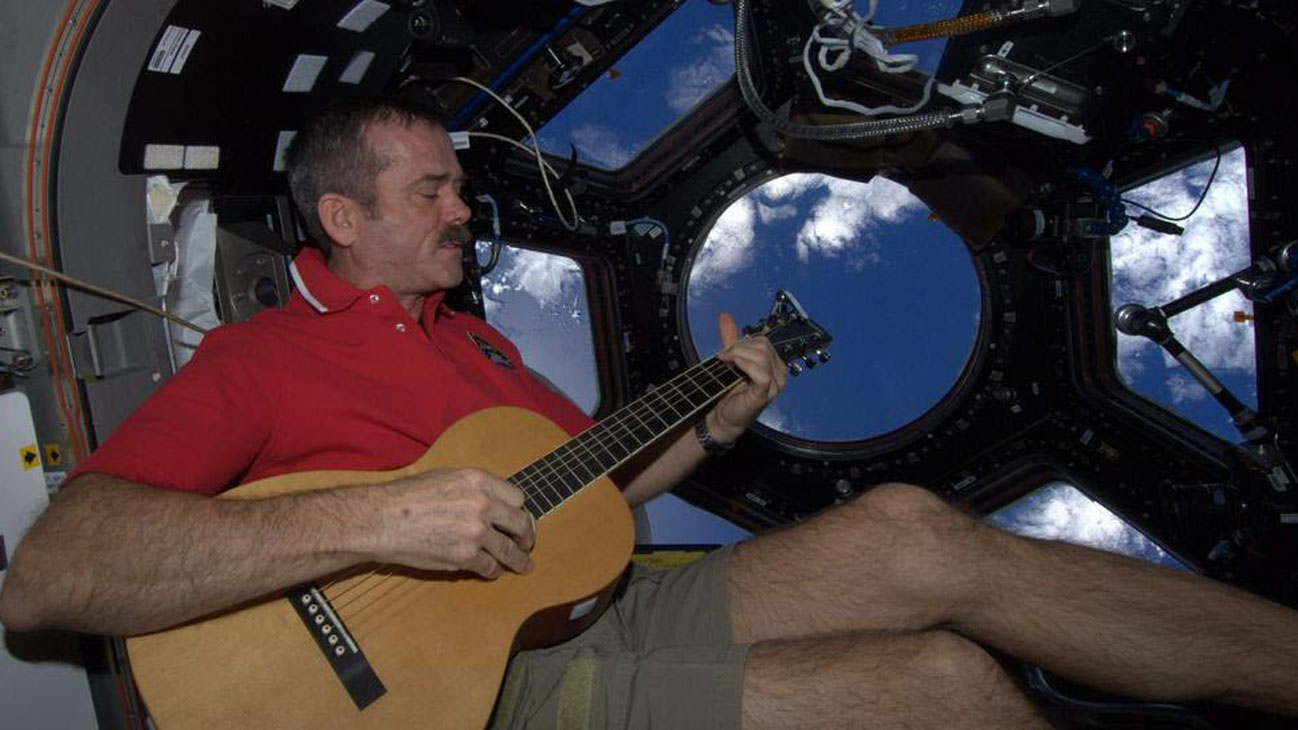 Chris Hadfield, Canada’s greatest guitar slinging astronaut, has this to say:
Chris Hadfield, Canada’s greatest guitar slinging astronaut, has this to say:
“… I was up (on the space station) for five months and it really gave time to think and time to look at the world, actually to steal 90 minutes at one point and just float by the window and watch the world, go round the world once with nothing to do but ponder it.
And I think probably the biggest personal change was a loss of the sense of the line between ‘us’ and ‘them’.
It’s really we sort of teach it to our children, you know. Don’t talk to strangers, this is us. This is our whatever – our family, our house, our neighours, our relatives, your school.
It slowly grows where the line between us and them is. Um but to – I’ve been around the world thousands of times, 2, 593 times – and that line we impose on ourselves of where us ends and them starts, just keeps diminishing and it wasn’t conscious. I noticed maybe a third of the way into my half year stint up there that I just started referring to everybody as ‘us’. Unconsciously there was some sort of transition in my mind that ‘Hey, we’re all in this together.’
And I think you come across any city in Australia and you see the pattern of the downtown and the suburbs and the surrounding farms and the water and the rail and the communications, just the standard human pattern. And then if you just wait until you cross the Pacific – takes about 25 minutes and then you come across the Americas and there’s that exact same pattern again. And then you wait another 20 minutes and you come across northern Africa – and there’s that exact same pattern again.
And we solve the same problems the same way, all over the world. It’s just ‘us’ and everybody just wants some grace and better chances for their children and a chance to laugh, understand it all. And that inclusionary feeling was all pervasive and unavoidable, having seen the world the way I’ve seen it and it was part of my motivations in doing my best to share it when I came back.”
Thanks to Alan Stewart for transcribing this.

